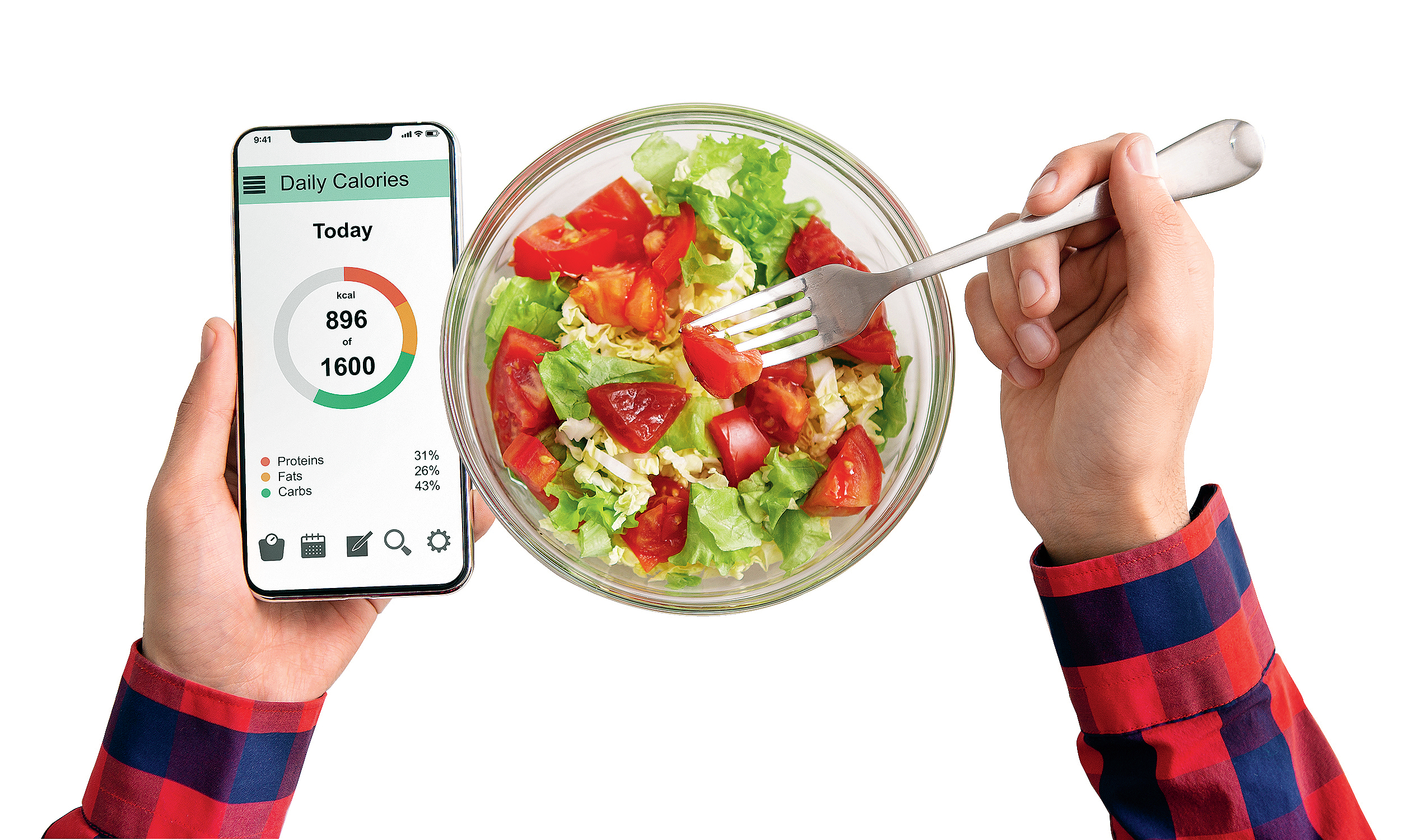We live in a digital world where almost everything can be accessed at the click of an icon. There are apps to order food, call a cab, pay your bills, shop for groceries, buy furniture, count the steps you’ve walked, track the calories you’ve eaten, suggest a fitness routine and so on. In fact, there seems to be a plethora of healthcare apps available. There’s an app for just about every aspect of well-being — from fitness training to water consumption to tracking ovulation. And many of us have turned to a mobile app to manage or improve our health, monitor sleep, fitness or diet.
Take 29-year-old Sri Vidya Prathap from Bangalore. “My doctor said I had to reduce at least five kilos. I researched a bit and bought the Tweak and Eat app,” says the speech therapist. Tweak and Eat, an AI-powered wellness app for weight management, analyses the nutritive content of a meal and makes portion control suggestions. All one needs to do is upload a picture of one’s meal (plate of food and drink). The app’s AI-enabled platform immediately analyses the items — it can even differentiate between deep fried and grilled, stir fried or baked food — and nutritional make-up of the meal and a nutritionist suggests real-time “tweaks” to it. Meal tweaks are based on an individual’s goals and body parameters, and refer to portion control, re-proportioning, eating sequence, tips and other meal-modification suggestions.
She explains, “I was assigned a nutritionist, who was very sincere. She gave me a diet plan, watched my nutritional trends and told me what I need to do every single day. At the end of each day, she questioned me if I missed a tweak.” Prathap lost 5.25kg in three months and is thrilled. “I pay Rs 400 a month, very affordable,” she says.
There is a free version too but Prathap opted for the paid version because that allowed more hand-holding. Most healthcare apps have a free and a paid version; the paid version is almost always better.
A study by Flurry mobile app analytics found that the use of healthcare apps grew by 330 per cent between 2014 and 2017. More than 75 per cent of active users accessed their app at least twice a week. More than 25 per cent opened them at least 10 times, reflecting high engagement and, the analysis suggested, high retention rates.
Tweak and Eat is just one among many apps that help you eat healthy and stay fit. There are also several health apps for stress management, medication reminder, to quit smoking and stay fit. There are plenty of testimonies online from people who seem to have achieved their health goals through apps such as MyFitnessPal, HealthifyMe and Streaks Workout. But really, how effective are these healthcare apps?
Last year, the IMS Institute for Healthcare Informatics, US, conducted an analysis of more than 40,000 healthcare apps available on the US iTunes app store, looking specifically at how these apps benefit consumer health. Only 16,275 of these apps are directly linked to patient care and treatment, found the investigators, while the others provide information that in no way improves patient health or well-being. The findings were echoed in a study at the University of Massachusetts Medical School, US, which compared 30 popular weight-loss apps with traditional weight-loss strategies. The researchers found that 25 per cent or fewer lifestyle-based strategies for weight loss — such as portion control and identifying reasons behind overeating — were incorporated in 28 of the apps, meaning these were likely to be ineffective for weight loss.
Says Ritika Agarwal, nutritionist and writer of the myth-busting book Fit Or Fiction, “Used prudently, health apps are a good way to monitor daily habits and lifestyle. They can be used by an average individual — who is overall healthy and does not have any major illness or disease — to monitor daily needs and habits.” These would include parameters such as water intake, calorie intake, number of steps per day and sleep hours. “By keeping a tab on these parameters, a person can make the necessary changes with regard to daily habits and eating patterns and, thereby, achieve fitness goals,” she adds.
But there is a caveat. According to Agarwal, however, one can’t completely rely on these apps. It is necessary to get a proper check-up from time to time according to needs and concerns. One has to realise that while an app can motivate an individual to achieve fitness goals, it should not be used as a diagnostic tool.
Diabetes apps can help keep a tab on carbs consumed, track blood sugar levels, provide alerts to check sugar levels and remind you to take insulin. “But they can’t replace a healthcare professional,” points out Agarwal.
A fitness app or a diet app, on the other hand, is a different matter. “It’s useful for people who do not have access to highly-qualified trainers or have a lower budget. Using these apps, people can exercise at their chosen time and place anywhere in the world,” says Manish Baheti, a chronic pain healing specialist and nutritionist who runs a personal training studio in Calcutta. He points out that the right diet or fitness app allows you to get expert advice even if you live far away from such experts but he cautions that one should always cross-check the credentials of these experts before taking their advice.
“Fitness apps are explicitly cool if somebody is intrinsically motivated and looking for economical ways to staying fit,” signs off Baheti.
In short, you can use a fitness app successfully if the app gets you advice from genuine experts and you are highly motivated to follow through. The other healthcare apps? Take them with a pinch of salt.










